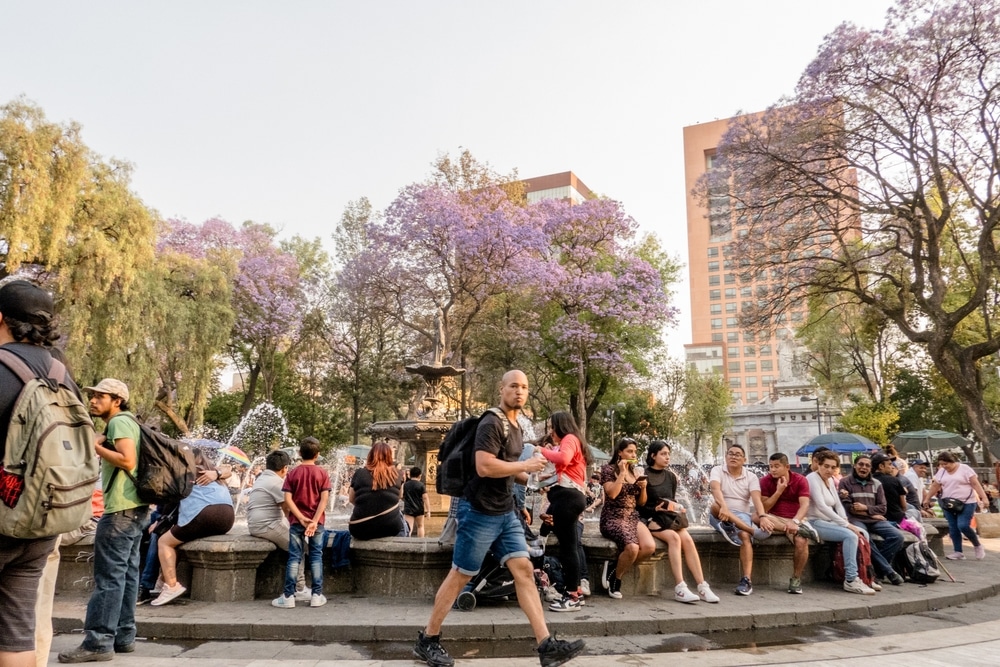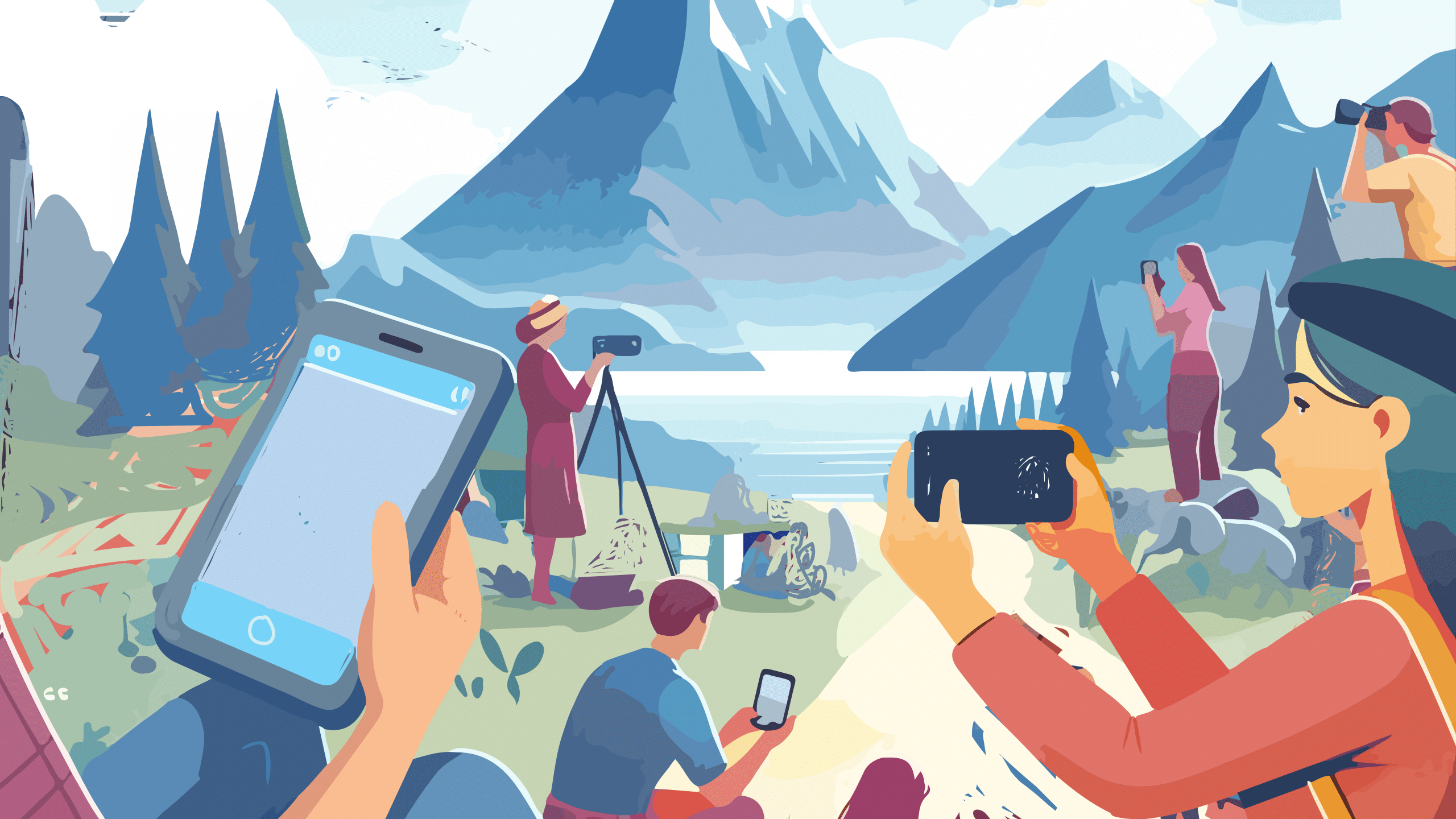Everyone needs somewhere to go that isn’t home or school/work; that’s where third places come in.
Whether you’re in college or not — perhaps newly graduated — having a third place can provide important benefits for mental health and socialization.
What is a “third place”?
A “third place” is a term in sociology coined by Ray Oldenburg in The Great Good Place. It refers to a place other than home (“first place”) or work/school (“second place”). These places offer opportunities to unwind and socialize with other members of your community.
In The Great Good Place, Oldenburg outlines three key characteristics of third places:
- Neutral Ground
- Leveler
- Conversation
- Accessibility and Accommodation
- Regulars
- Low Profile
- Playful Mood
- “Home away from home”
You have no obligation to spend time in a third place; gatherings are casual, and a third place will often see a couple of regular visitors. This is one of the biggest differences from the first and second places.
At home and work/school, financial and social responsibilities require your presence, and there will likely be certain formalities or hierarchies between you and others there. Third places also — ideally — cost little or nothing to spend time in.
Why do you need a third place?
Third places offer a space for respite and socialization. While it’s of course possible to experience relaxation at home, third spaces offer neutral grounds separated from one’s responsibilities.
Physically changing up your location can be beneficial for mental health, while constantly staying in the same one or two places can put you in a mental rut. A 2020 study, for example, found that experiencing a variety of physical locations was associated with increased positive emotion. Another 2020 study found that isolation during the COVID-19 pandemic was associated with increased risk of depression and anxiety in children and teens. These effects can be especially prevalent for those with existing mental health conditions.
Besides the lack of physical variety itself, staying only at home or work can affect mental health by depriving you of contact with people outside these bubbles. This includes both friends and strangers, as well as direct social and mental health resources. After all, it can be hard to form a strong support system when you only ever stay at home or go to work.
In addition, the characteristics of a third place as a “leveler” and as accessible suggest another important quality: third spaces should allow and encourage diversity. They offer not just relaxation and stimulation for yourself, but also a place where you can interact and be surrounded by people of various backgrounds. This can include people with common interests as you as well as people with very different backgrounds. Thus, an ideal third space should create a positive environment for both personal fulfillment and for the fostering of community.
The disappearance of third places
Unfortunately, there has been discussion in recent years of the disappearance of third places.
This disappearance (or at least its acceleration) may be partly attributed to the COVID-19 pandemic and the rise of work-from-home. While the work-from-home model certainly has benefits for accessibility and convenience, there are also drawbacks. One is that, for many people, the boundary between home and work (the first and second places) has blurred.
As Angela Henshall at the BBC describes:
With our favourite hangouts banned, we’ve been stuck in environments that we equate only with work – either professional labour or domestic labour, with no place to let off steam or get some respite.
Angela Henshall, BBC
The disappearance of third spaces may also be attributed to a lack of inexpensive and free hangout spots, partly as a result of inflation.
For example, although coffee shops are a common go-to third place, they still tend to require spending money. As the University of Chicago English Language Institute describes:
…purchasing a drink or a snack is often an unspoken requirement to attend and linger in these third spaces. While you do not have to spend an arm and a leg* to enter a coffee shop or bar, the cost of this imaginary “entry ticket” may prevent some people from regularly using these spots as their preferred third space.
Madeleine Roberts-Ganim, The University of Chicago English Language Institute
Although a coffee may be relatively inexpensive, needing to repeatedly spend money can be a burden. As such, cost can create a high barrier to entry and make some places inaccessible to lower income individuals. A major characteristic of third places is the opportunity to habitually gather in a neutral space with many different people. This is hard to accomplish when large sections of the community cannot regularly participate.
Furthermore, the availability of third places tends to be unevenly distributed. A 2022 study from Syracuse University, for example, found less availability of third places per capita in the U.S. in communities with large Black and Hispanic populations, low-income communities, and rural communities.
The lack of third places can be especially a problem for children and young adults. Take, for example, the rise of so-called “Sephora Kids.” In addition to the influence of social media and beauty standards, young people may also flock to malls because of a lack of other places to hang out with friends outside of school.
Post-graduation emptiness
Finding a third place can be especially important — and often especially difficult — for newly graduated students. Many people experience post-graduation sadness from a variety of factors including lacking structure, unemployment, and daunting expectations of post-school life progress.
Additionally, for many students, graduation can mean deprivation of third places. Many colleges and universities are in locales with relatively easy access to potential third places. Libraries, cafes, parks, and quads all tend to be just a walk or bus or bike ride away on many campuses.
The period of one’s late teens and twenty-somethings can be difficult mentally and emotionally. Finding a new third place where you can ease your mind and meet people could help to manage the symptoms of a quarter-life crisis.
So, where can you go?
At this point, you may ask yourself: so, where can I go? The answer to that question largely depends on where you live and what modes of transportation are available to you.
Ideally, a third place is close to home, somewhere you can get to easily. However, for those in suburbs or unwalkable cities, it can be difficult to find one nearby.
Here are just a few examples of potential third places:
- Cafes – many cost a couple of dollars, but offer a chill space to hang out with friends or to just enjoy vibes
- Libraries – free and quiet with plenty of books to choose from; some libraries may have additional activities and amenities
- Makerspaces/hackerspaces – explore crafts and technology like sewing, music, and 3D printing; some libraries and youth centers may have their own makerspaces
- Laundromats – kill the time waiting for your washing by striking a conversation with your neighbors
- Parks – go for a stroll in nature; invite friends or enjoy your own company
- Quads – like a park, if you’re in school, your campus quad can be a good, free place to hang out with friends and meet new people
- Virtual third spaces – while they lack the intimacy of physical spaces, online spaces like chatrooms and forums can offer some of the social benefits of physical third places
Figure out your transportation options and see what spots pique your interest. Explore your area and find your own third place — or even create one yourself.












